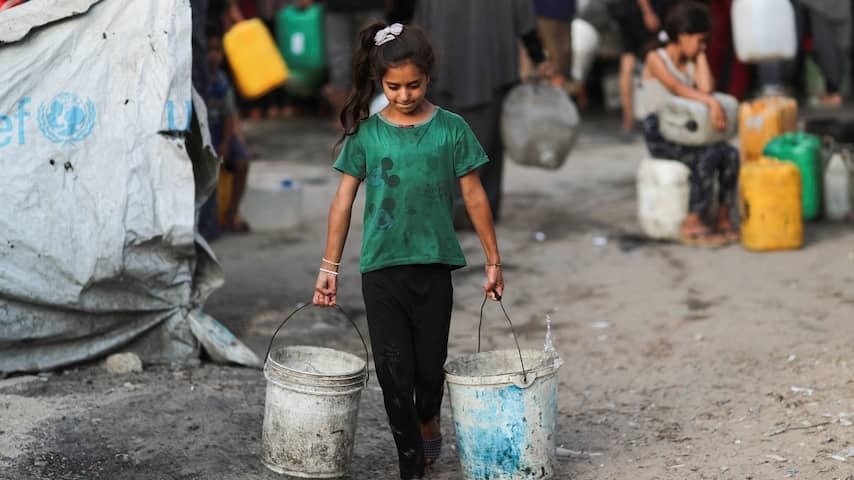
The Dutch Data Protection Authority (AP) asks the outgoing cabinet to formal protest against the new registration requirements that Israel sets for aid organizations. The requirements bring organizations to an “impossible position”.
The app of the AP is in the run -up to the committee debate about the humanitarian situation in Gaza. The House of Representatives interrupts the summer recess for this.
Aid organizations must, among other things, provide CVs of employees, passport copies, statements about the behavior and names of their children. The Israeli government uses that data for screening and profiling, the AP thinks.
This registration obligation brings organizations to an impossible position. “If they meet it, they will probably violate privacy rights of employees and their families. If they do not meet, they will no longer be allowed to offer help in the Gaza Strip after 9 September,” writes the privacy watchdog.
“All expressions about dignitaries or certain criticism of the state of Israel, published photos, online calls, memes or views from the past can be matched with the information obtained for registration,” the AP reports. Sharing the data can provide “serious safety risks” for care providers.
Call follows resistance from aid organizations against requirements
The Waakhond therefore calls on the government to make formal protest. The AP also asks the Ministry of Foreign Affairs to raise the issue of the European Commission. In addition, the AP contacts its Israeli counterpart and the regulator will talk to other European privacy watch dogs.
In May, dozens of international aid organizations are already opposed to the registration rules. Oxfam, War Child and Save the Children, among others, pointed out that Israel can use the rules to keep organizations that criticize the country. “These measures not only undermine assistance in the occupied Palestinian territories, but also create a dangerous precedent for humanitarian operations worldwide.”
The Dutch Data Protection Authority (AP) is Asking the Outgoing Cabinet to Formally Protest Against The New Registration Requirements That Israel Immoses On Aid Organizations. The Requirements Put Organizations in An “Impossible Position”.
The AP’s call come in the run-up to the committee debate on the humanitarian situation in Gaza. The House of Representatives is Interrupting Its Summer Recess for This Purpose.
Aid Organizations Must Provide, Among Other Things, Employee CVS, Passport Copies, Certificates of Good Conduct and The Names of Their Children. The Israeli Government Uses This Data For Screening and Profiling, The AP Believes.
This registration Requirement Puts Organizations in An Impossible Position. “If they comply, they are likely to violate the privacy rights of employees and their families. If they don’t comply, they will no longer be allowed to provide assistance in the gaza comic after September 9,” the privacy watchdog writes.
“All Expressions about Dignitaries or Certain Criticisms of the State of Israel, Published Photos, Online Calls, Memes Or Past Positions Can Be Matched with the Information Obtained for Registration,” The AP Reports. Sharing the Data can pose “serious security risks” for aid workers.
Call Follows Resistance from Aid Organizations Against Requirements
The Watchdog is Therefore Calling on the Cabinet to Formally Protest. The AP also Asks The Ministry of Foreign Affairs to Raise the Issue with the European Commission. In Addition, The AP is contacting its Israeli counterpart and the supervisor Will Be Talking to Other European Privacy Watchdogs.
In May, Don’t Of International Aid Organizations Already opposed the Registration Rules. Oxfam, War Child and Save the Children, Among Others, Pointed Out That Israel Could use the rules to Exclude Organizations That Are Critical of the Country. “These Measures not only undermine aid in the Occupied Palestinian Territories, but also create a dangerous precedent for humanitarian operations worldwide.”